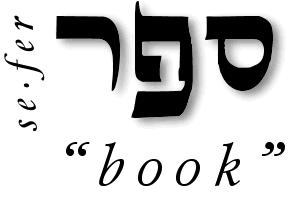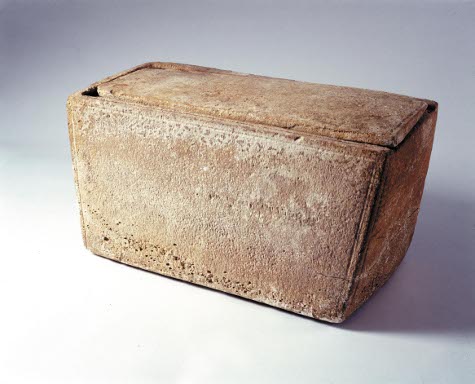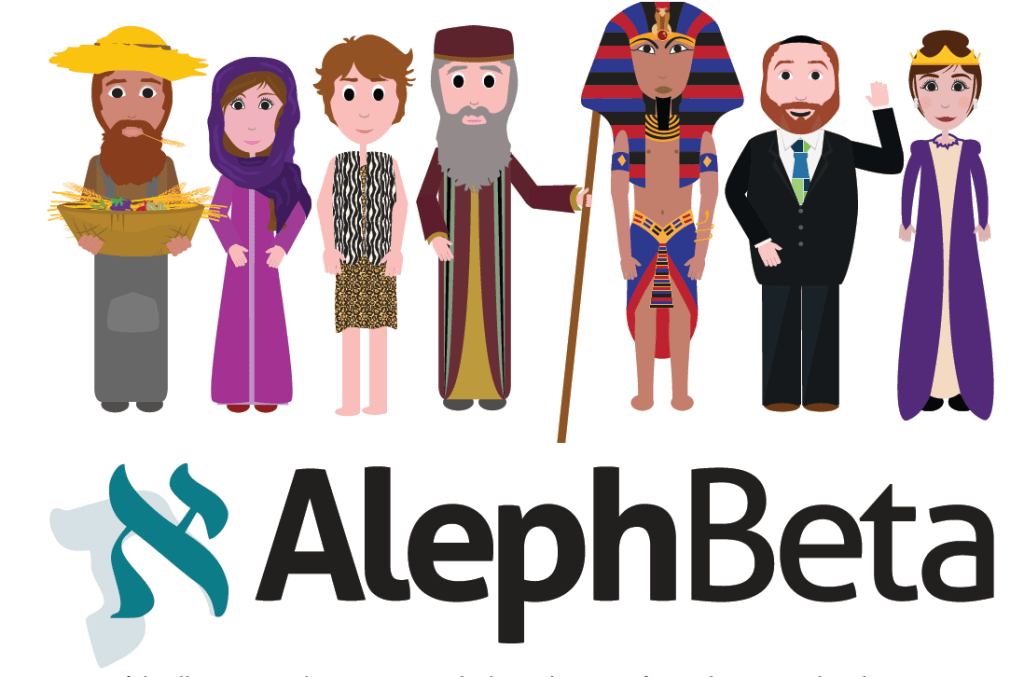I have written and spoken about Sukkot a few times over the years, but today, as Sukkot ends for another year, I wish to share a very different perspective on Sukkot, but one that I think leads us back to the core message that Sukkot really celebrates and is a portent to.
Let me start by quoting Rabbi David Fohrman of AlephBeta who shared this most intriguing new perspective:
“One of the strange things about Sukkot is that, if you think about it, one of the ways in which it is an outlier among the three pilgrimage festivals, Sukkot, Shavuot and Passover, is that the event that it commemorates is apparently never mentioned in the text outside of the verse that tells you about this holiday. Imagine if you never knew about the Exodus in the Torah, and the only way you knew about the Exodus is because you looked in Leviticus 23 and there was a holiday called Passover. The Torah says, by the way, you should always celebrate the holiday called Passover because God took you out of Egypt. You’d think that was a little strange, right? I mean, you would say, but where’s the story about God taking me out of Egypt? That’s why, of course, the whole first half of the book of Exodus is devoted to the story of God taking us out of Egypt. We hear about the story of Exodus and then in Leviticus 23, we hear about this holiday that commemorates that story back in Exodus. Same thing with the Revelation. You hear about the Revelation in the middle of Exodus and there’s a holiday that commemorates the Revelation later on in Leviticus.
When it comes to Sukkot, though, that pattern is broken, because all you have is Leviticus 23 telling you that you should celebrate this holiday called Sukkot. “Ki basukkot hoshavti et B’nei Yisrael behotzi’i otam me’eretz Mitzrayim’ – because when I took you out of Egypt, I caused you to dwell in sukkot.”
Now, if it were not for that holiday, if it had never mentioned that you were supposed to celebrate this holiday, we wouldn’t know the event that we’re supposedly commemorating, because never anywhere else in the Torah does it specifically say that we slept in these huts. The only way that we actually know that we slept in these huts is because there’s a verse that says we’re supposed to celebrate the holiday of Sukkot. We do that because we slept in these huts, but it’s never told to us in the story part of the Torah. It’s just told to us as a law….”.
While the Rabbi does not mention it, it is even more noticeable in my understanding, that there is no reason given as to why Yom Teruah should be celebrated. I discuss this at length here ‘Yom Teruah – the Day of Trumpets & the arrival of Messiah’ – http://circumcisedheart.info/Christian%20site/Yom%20Teruah.pdf
But back in Exodus 12 there is a very significant verse:
“The people of Isra’el traveled from Ra‘amses to Sukkot, some six hundred thousand men on foot, not counting children.” – Exodus 12:37
Note here that when the people of Israel first left Egypt (from Ra’ames’) the first place (perhaps a ‘shantytown’ of sorts) that they arrived at was Sukkot.
What was the city of Rameses? It was built by the Israelites themselves during their slavery in Egypt. It was a storage city. It had silos full of grain. Egypt at that time was was the breadbasket of the ancient world, so Rameses was a very secure city, and also for slaves it was the place where their food came from. So in a perverse sort of way, when you have accepted your slavery over hundreds of year, it represents the safety of a known place, a known source of sustenance, whereas Sukkot was in the desert and a place of insecurity; doubt and potential starvation.
In fact, Sukkot was probably named after the huts that people slept in. In Genesis we read about Jacob leaving the house of Laban. When he leaves the house of Laban, it just turns out that after he escapes Laban’s house and after he escapes Esau, the very first place he comes to (see Genesis 33) is Sukkot:
“Ya‘akov went on to Sukkot, where he built himself a house and put up shelters for his cattle. This is why the place is called Sukkot [shelters].” – Gen 33:17
So even if this is not the same location, it appears to be named Sukkot because of the ‘shelters’ made for the cattle.
And as you can surmise that Israel was travelling with a lot of cattle as well, and there was no large town with motels, etc. to accommodate them, we can imagine that they would have slept for the most part in the shelters they made.
So we can perhaps see why Rabbi Fohrman argues that ‘ … this was the moment of great trust, the gift of trust, which Israel gave to God. And Jeremiah talks about this: … God is talking and saying that, you followed me into the desert, in a place where there was absolutely no way to make any food. You trusted that I would be there for you and you were willing to sleep that night. That night, if you imagine what it was like, … there was that, sort of, mixed bittersweet feeling.
On the one hand, you’re free, the first taste of the air of freedom. Yet, on the other hand, you are terrified. …”
The Israelites had left a land of plenty, with a roof over their heads, where they had been settled down for hundreds of years and then in one night, they left and put themselves in God’s hands and God took care of you. God protected them that night, that first night of freedom in Sukkot after leaving the slavery of Rameses.
Isn’t that something worth remembering, worth celebrating every year?
But there is of course much more.
As I discuss in my podcast on Sukkot from a decade ago now (link here), it is really in many ways a dress rehearsal for the greatest marriage celebration ever!
Below is the basic script of the podcast if you prefer to read rather than listen.
The Joy of a Wedding Feast: Sukkot foreshadows the greatest wedding ever!
We have entered the Festival of Sukkot (or the Feast of Booths or Tabernacles). Of all the joyous Holy Days ordained by the Almighty, this is the last in the yearly cycle and surely the most joyful. It also in a sense rises in joy to the last great day (Simchat Torah), the day when the giving of the Amighty’s Instructions to mankind, and specifically to His representatives of mankind, the newly freed Jewish people at Mt Sinai in the desert.
Before I expand a little on this here are some questions and answers about Sukkot (this form the core of the Podcast on Sukkot freely available here – http://aubreyandpaul.podomatic.com/entry/2012-09-30T05_42_58-07_00
- Where does the feast of sukkot or Tabernacles originate from?
From the Torah; specifically from Leviticus 23: 33-43:
33 ADONAI said to Moshe,
34 “Tell the people of Isra’el, ‘On the fifteenth day of this seventh month is the feast of Sukkot for seven days to ADONAI.
35 On the first day there is to be a holy convocation; do not do any kind of ordinary work (i.e. a Shabbath). 36 For seven days you are to bring an offering made by fire to ADONAI; on the eighth day you are to have a holy convocation (another Sabbath) and bring an offering made by fire to ADONAI ; it is a day of public assembly; do not do any kind of ordinary work.
37 “‘These are the designated times of ADONAI that you are to proclaim as holy convocations and bring an offering made by fire to ADONAI -a burnt offering, a grain offering, a sacrifice and drink offerings, each on its own day –
38 besides the Shabbats of ADONAI, your gifts, all your vows and all your voluntary offerings that you give to ADONAI.
39 “‘But on the fifteenth day of the seventh month, when you have gathered the produce of the land, you are to observe the festival of ADONAI seven days; the first day is to be a complete rest and the eighth day is to be a complete rest.
40 On the first day you are to take choice fruit, palm fronds, thick branches and river-willows, and celebrate in the presence of ADONAI your God for seven days.
41 You are to observe it as a feast to ADONAI seven days in the year; it is a permanent regulation, generation after generation; keep it in the seventh month.
42 You are to live in Sukkot (plural of sukkah) for seven days; every citizen of Isra’el is to live in a sukkah,
43 so that generation after generation of you will know that I made the people of Isra’el live in sukkot when I brought them out of the land of Egypt; I am ADONAI your God.'”
Another good reference is Deut 16:
“12 Remember that you were a slave in Egypt; then you will keep and obey these laws.
13 “You are to keep the festival of Sukkot for seven days after you have gathered the produce of your threshing-floor and winepress.
14 Rejoice at your festival – you, your sons and daughters, your male and female slaves, the Levites, and the foreigners, orphans and widows living among you.
15 Seven days you are to keep the festival for ADONAI your God in the place ADONAI your God will choose, because ADONAI your God will bless you in all your crops and in all your work, so you are to be full of joy!
God wants a PARTY!! He wants, he commands joy! Joy from the full appreciation of their freedom and their blessings!
The Torah commands the Jewish people to celebrate the Feast of Booths or Tabernacles for 7 days, from the 15th to the 21st of the Seventh month (Tishrei). This holiday is also known as “Succos” and the “Feast of Tabernacles”. Work is forbidden on the 1st day of the seven days.
- What does the word sukkot means and where it comes from?
The central theme of Sukkot is rejoicing – following from repentance (Yom Teruah) and the 10 Days of Awe) & redemption (Yom Kippur).
The word ‘sukkah’ means a temporary dealing – as per the dwellings of Israel during the 40 years in the desert.
It is understood from Lev 23:40 & Neh 8:14-16 that it should be built with the 4 species listed there.
Both males and females are expected to dwell (at least spend some time in and eat a meal) in a Sukkah (Booth) for all 7 days of the Festival whether at home or in Jerusalem.
Building a Sukkah:
The Torah calls for the building of this ‘tent’ but does not state how many walls it should have, etc. In Nehemiah 8:14-16 we learn of a national gathering in which the Torah is read to the people and they rediscover what is commanded in it. – around 2400 years ago – possibly as much as 1000-1600 years have elapsed since Moses.
1 All the people assembled as one man in the square before the Water Gate. They told Ezra the scribe to bring out the Book of the Torah of Moses, which the LORD had commanded for Israel.
2 So on the first day of the seventh month Ezra the priest brought the Law before the assembly, which was made up of men and women and all who were able to understand.
3 He read it aloud from daybreak till noon as he faced the square before the Water Gate in the presence of the men, women and others who could understand. And all the people listened attentively to the Book of the Law….
13 On the second day of the month, the heads of all the families, along with the priests and the Levites, gathered around Ezra the scribe to give attention to the words of the Torah.
14 They found written in the Law, which the LORD had commanded through Moses, that the Israelites were to live in booths during the feast of the seventh month
15 and that they should proclaim this word and spread it throughout their towns and in Jerusalem: “Go out into the hill country and bring back branches from olive and wild olive trees, and from myrtles, palms and shade trees, to make booths”–as it is written.
16 So the people went out and brought back branches and built themselves booths on their own roofs, in their courtyards, in the courts of the house of God and in the square by the Water Gate and the one by the Gate of Ephraim.
17 The whole company that had returned from exile built booths and lived in them. From the days of Joshua son of Nun until that day, the Israelites had not celebrated it like this. And their joy was very great.
18 Day after day, from the first day to the last, Ezra read from the Book of the Law of God. They celebrated the feast for seven days, and on the eighth day, in accordance with the regulation, there was an assembly.
In Israel it is a very big deal.
I was in Israel in 2011 for three weeks including Yom Kippur and Sukkot. In Jerusalem we saw many people with succah’s on their balconies or roofs, or in front of their houses or hotels. Often very brightly decorated on the inside and traditionally open at the top so that they can see the heavens at night. The Gold Hotel in Jersualem where we were staying had its own sukkah; and we visited a couple in the suburb of Gilo who had turned there patio into a large succah. We had a great supper together and a time of sharing and asking these Jewish people who had made aliyah how they found Israel etc.
- What does this festival represent?
First, it is a great holiday in Israel; but it represents a desire to cleave to God, a desire to be united; to be one with the Almighty.
Sukkot, at its core, carries one message: “God, we want to stay with You.” In remembering the days in the wilderness; the Jewish people are to remember how reliant and how close they were to God.
Just as God’s Clouds of Glory embraced and protected them for 40 years in the desert, they desire to experience again that intimate sense of closeness.
Intriguing this is also very much a day for the Nations as well, for the Gentiles; not just in the past and increasingly today but most emphatically in the Coming Age!
This day is a day in which there were sacrifice offerings in the Temple for each of the Gentile nations. According to the Rabbis, there were 70 Gentile nations in ancient times – from the Tower of Babel. Beginning in Numbers 29:13, you can read about the sacrifices that were offered on each of the days of Sukkot. On the first day, 13 bullocks were offered as a burnt offering. On the second day, 12 bullocks, on the third day, 11 bullocks, until finally on the seventh day, only 7 bullocks were offered, making a total of 70 bullocks-one for each of the Gentile nations.
Numbers 29: 12
“‘On the fifteenth day of the seventh month you are to have a holy convocation. You are not to do any kind of ordinary work, and you are to observe a feast to ADONAI seven days.
13 You are to present a burnt offering, an offering made by fire, bringing a fragrant aroma to ADONAI. It is to consist of thirteen young bulls, …
17 “‘On the second day you are to present twelve young bulls,
20 “‘On the third day eleven bulls,
23 “‘On the fourth day ten bulls,
26 “‘On the fifth day nine bulls,
29 “‘On the sixth day eight bulls,
32 “‘On the seventh day seven bulls,
Consider how specific the Almighty is here – yet he doesn’t explain why.
We are seeing an increasing recognition amongst many Christian groups of the importance of Sukkot and of their desire to share it with Israel, in Israel.
As it was to be a time full of great joy, not surprisingly dancing was very much a part of the Feast of Tabernacles and is an ancient tradition. The following passage in the book of Judges shows the custom of the young maidens dancing during Sukkot.
This custom is mentioned in Scripture because of a special situation that had taken place with the tribe of Benjamin. Because of a terrible sin and slaughter within Israel, only a remnant of men from Benjamin were left and they had no native maidens left to marry. So the elders of the congregation came up with a plan so that the tribe would not die out.
“Then they said, Behold, there is a feast of the LORD in Shiloh yearly … Therefore they commanded the children of Benjamin, saying, Go and lie in wait in the vineyards; And see. And, behold, if the daughters of Shiloh come out to dance in dances, then come ye out of the vineyards, and catch you every man his wife of the daughters of Shiloh, and go to the land of Benjamin.”
(Judges 21:19-21)
Shiloh was where the Tabernacle and the Ark was sited for some 379 years when it first entered Israel until the first Temple was built in Jerusalem. So for almost 400 years this was the site the 12 tribes of Israel came to 3 times a year for Pesach (Passover), Shavuot (Pentecost) and Sukkot. It was here the Eli was High Priest with the boy Samuel attending him. It was here that the Ark was taken out into battle and lost for a time to the Philistines.
There is a model of the Tabernacle at the site of Shiloh, in Samaria that you can look at as well as the most likely site for the Tabernacle. It was from here that King David took the Ark to Jerusalem.
4) What has Sukkot got to do with Weddings?
The Feast of Tabernacles (Sukkot) pictures the celebration of the wedding by the wedding party and invited guests.
A traditional Jewish wedding festival has the following characteristics:
- Seven days long
- Command to rejoice/have joy
- A temporary dwelling – the bride and groom will only enter their house after the wedding feast is over
- The many invited guests (– all the Nations)
Perhaps Isaiah 2:3 is speaking of Sukkot or at least Sukkot represents the beginning of this process:
“Many peoples will go and say, “Come, let’s go up to the mountain of ADONAI, to the house of the God of Ya’akov! He will teach us about his ways, and we will walk in his paths.” For out of Zion will go forth Torah, the word of ADONAI from Jerusalem.”
5) Does Sukkot apply to future events as well as the other festivals we have discussed?
We see the future connection in Zech 14
“16 Finally, everyone remaining from all the nations that came to attack Yerushalayim will go up every year to worship the ADONAI, the Lord of Hosts and to keep the festival of Sukkot.
17 If any of the families of the earth does not go up to Jerusalem to worship the king, ADONAI, the Lord of Hosts, no rain will fall on them.
18 If the family of Egypt doesn’t go up, if they refuse to come, they will have no [annual] overflow [from the Nile]; moreover, there will be the plague with which ADONAI will strike the nations that don’t go up to keep the festival of Sukkot.
19 This will be Egypt’s punishment and the punishment of all the nations that don’t go up to keep the festival of Sukkot.” (Zech. 14:16-19)
But if it is truly a Marriage Festival, a ‘Wedding Breakfast’ or ‘Wedding Reception’ as we call it here in Australia, then it appears to foreshadow the time of the great Marriage Supper of the Messiah; when the faithful will sit down at the feast table with Abraham, Isaac and Jacob.
Isaiah 25:
“6 On this mountain Adonai-Tzva’ot
will make for all peoples
a feast of rich food and superb wines,
delicious, rich food and superb, elegant wines.
7 On this mountain he will destroy
the veil which covers the face of all peoples,
the veil enshrouding all the nations.
8 He will swallow up death forever.
Adonai Elohim will wipe away
the tears from every face,
and he will remove from all the earth
the disgrace his people suffer.
For Adonai has spoken.
9 On that day they will say,
“See! This is our God!
We waited for him to save us.
This is Adonai ; we put our hope in him.
We are full of joy, so glad he saved us!”
10 For on this mountain
the hand of Adonai will rest.
5) In the future how will this festival be kept?
As discussed and following the instructions of Zechariah 14– with all the nations sending representatives to Jerusalem.
6) Is it true that in the future all nations will be required to keep Sukkot?
Clearly that is what Zechariah 14 tells us.
7) Is there anything of significance where we read of Yeshua observing this festival?
On the seventh day of Sukkot, this ‘great day’ of the feast there was a Water Pouring Ceremony where the people would circle the altar and sing the verses from Psalm 118 seven times as they beat the willows.
“Therefore with joy shall you draw water out of the wells of salvation.”
– Isaiah 12:3
“For I will pour water upon him that is thirsty, and floods upon the dry ground: I will pour my spirit upon thy seed, and my blessing upon your offspring: and they shall spring up as among the grass, as willows by the water courses.”
-Isaiah 44:3-4
“In that day there shall be a fountain opened to the house of David and to the inhabitants of Jerusalem for sin and for uncleanness.”
Zech. 13:1
“Then will I sprinkle clean water upon you, and ye shall be clean: from all your filthiness, and from all your idols, wilt I cleanse you. A new heart also will I give you, and a new spirit will I put within you: and I will take away the stony heart out of your flesh, and I will give you an heart of flesh. And I will put my spirit within you, and cause you to walk in my statutes, and ye shall keep my judgments, and do them.”
– Ezek. 36:25-27
The water ceremony represents a cleansing; a renewal and purification before the great ‘8th Day Shabbat’
John 7 “1 After this, Yeshua traveled around in the Galilee, intentionally avoiding Judah because the Judeans were out to kill him.
2 But the festival of Sukkot in Judah was near;
3 so his brothers said to him, “Leave here and go into Judah, so that your disciples can see the miracles you do;
4 for no one who wants to become known acts in secret. If you’re doing these things, show yourself to the world!” …
14 Not until the festival was half over did Yeshua go up to the Temple courts and begin to teach.
37 Now on the last day of the festival, Hoshana Rabbah, Yeshua stood and cried out, “If anyone is thirsty, let him keep coming to me and drinking!
38 Whoever puts his trust in me, as the Scripture says, rivers of living water will flow from his inmost being!”
This day is also associated with the prayer for rain:
We read in the beginning of this weeks Torah Portion called Parshat Haazinu (Reading of the Song of Moses – see earlier Blog post) the following words;
“Listen, O heavens, and I will speak! And let the earth hear the words of my mouth! My lesson will drip like rain; my word will flow like dew; like storm winds on vegetation and like raindrops on grass.” (Deuteronomy 32:1)
This is not the only time heaven and earth are brought as a witness throughout the text of the Tanakh (the Hebrew Bible). The terms “heaven and earth” clearly are not used by accident or inadvertently.
The “Heavens and the Earth” serve as eternal witnesses on the one hand and God’s language with His people on the other.
Yet we are also told that the “Heavens and the Earth” will be used as a rod of judgment as well: “Take care that you not be seduced and turn away to serve other gods. Then G-d’s fury will turn against you. G-d will block the sky. There will be no rain. The earth will not grant its produce. You will quickly perish from the good land that G-d grants you” (Deuteronomy, 11:17).
And again in the book of Amos ; “And I also have withholden the rain from you, when there were yet three months to the harvest; and I caused it to rain upon one city, and caused it not to rain upon another city; one piece was rained upon, and the piece whereupon it rained not withered.”(Amos 4:7 ).
Yet those same “Heavens and the Earth” provide eternal comfort as well. When HaShem exiles His people from the land of Israel he declares that the land would feel it and show it. The land would become desolate. So desolate that any nation that would try to inhabit it would become desolate as well (Leviticus 26:32-35).
Ezekiel 36:8 ‘But ye, 0 mountains of Israel, ye shall shoot forth your branches and yield your fruit to my people Israel for they are quickly returning”
The Historian, Rabbi Ken Spiro concludes from this that: ‘When the Jewish People are in the Land of Israel, the Land of Israel flourishes; when the Jewish People are not in the Land of Israel it becomes desolate.’
There is much physical evidence for the reality of this miraculous phenomenon.
While the Land of Israel is clearly NOT a conscious being, God’s intention is very clear that this Land is ONLY to be inhabited successfully by the Jewish people.
So long as Israel are not on their land it will not yield its produce as it should; but when it will resume yielding its produce, that will be the clear sign that the time of the redemption is near, when Israel is to return to its land.
“For the land to which you are coming to possess is not like the land of Egypt, out of which you came, where you sowed your seed and which you watered by foot, like a vegetable garden. But the land, to which you pass to possess, is a land of mountains and valleys and absorbs water from the rains of heaven” – Deuteronomy 11:10-11
That is to say, that in the rest of the world when one wants water one must turn to sources like the Nile, yet in this land if one wants water one must turn to GodSo the heavens and the earth have served as eternal witnesses. They have served to make God’s declarations of judgment a harsh physical reality. Yet they will also serves as sure signs of comfort.A land that had lain barren and fallow begins to bloom.
A land that seemed to have been cursed shakes off its ancient curse. A land that is waiting for its children to come home. Every blade of grass, every flower, every tree and every fruit become a testimony to the truth of the Divine promise.
When we taste some fruit of Israel today and marvel at how good it tastes, e should realize that this is so because we are not just eating a piece of fruit, but we are actually eating a piece of prophecy fulfilled!
8) What is Simchat Torah?
Joy of Torah or Feast of the 8th Day (Shemini Atzeret)
The “8th day” of this 7 day Festival is a day of rest called in the Torah “Shemini Atzeret”. This holiday is widely known today by the Rabbinic misnomer “Simhat Torah” (“Celebration of the Torah”). The Rabbanites made up this name which refers to their annual reading of the Torah in weekly portions which ends on Shemini Atzeret. Neither the annual reading of the Torah nor the name Simhat Torah appear in the Bible and these are later Rabbinic corruptions of God’s law. Shemini Atzeret is not part of Sukkot and the laws of Sukkot do not extend to this day (i.e. Pilgrimage, dwelling in a booth). As a day of rest all work is forbidden on Shemini Atzeret.
I believe that just as after the Marriage ceremony, the married couples new life together begins; after the Great Sukkot, the Marriage Supper of the Lamb od God; the New Life will begin; the Kingdom of God will start.
Thus Semini Arzeret or Simchat Torah represents the first day of the New Age!










